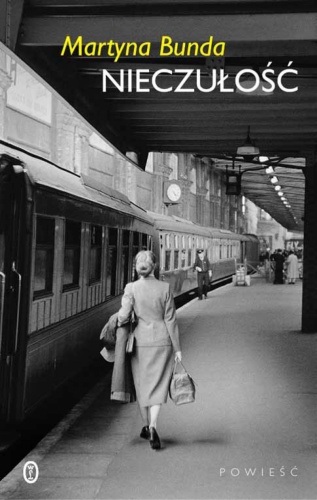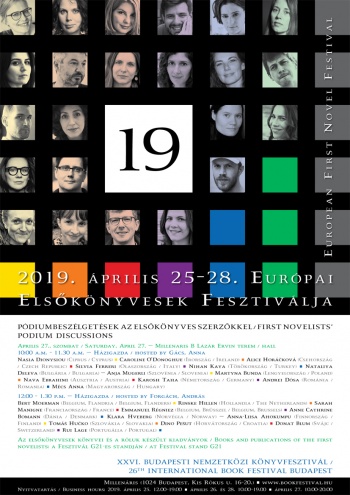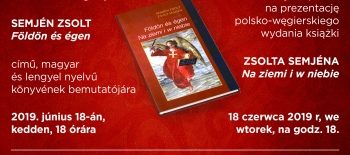European First Novel Festival will be held for the 19th time within the frame of the Book Festival to introduce talented young authors from the members of the European Union. Guest from Poland: Martyna Bunda.
Saturday 27 April 2019, 10:00 am
Millenáris B, Lázár Ervin terem
1024 Budapest, Kis Rókus u. 16–20.
Martyna Bunda has been a news reporter since the age of 18, a job that in retrospect she views as her most important training ground. It took her inside hundreds of homes (and the Poles love it when you take off your shoes) and brought her hours of conversations with all sorts of people – quite often in extreme and unusual situations. From 2012 to 2018 she edited the national news section for the weekly journal Polityka. In this job she stopped writing her own articles, but now had the time to work on a book.
Despite attending music school she failed to become a guitarist, but she does have a degree in social policy from Warsaw University, and she also has two daughters.
She was born at eight minutes past eight on Women’s Day, in International Women’s Year (according to the United Nations), and she was raised in Kashubia, the part of Poland to the south-east of Gdańsk where Unfeeling is set.
Unfeeling is her first novel, and in 2018 it won her the Gryfia Literary Award as well as nominations for Poland’s biggest literary prize, the Nike, and for the Gdynia Literary Prize in the fiction category. She has twice been shortlisted for the Grand Press award for her journalism.
A novel about major historical events and a family of women strong enough to survive them.
A brilliant literary debut that pays tribute to female solidarity.
The novel is set in Dziewcza Hill, a small village in Kashubia. Here, in the house she builds with the compensation she receives when her husband is killed in a tragic accident, Rozela raises her three daughters. Gerta, the oldest, is like her mother ‒ extremely painstaking, with a strong sense of responsibility; Truda the middle one, knows how to get the best out of life and yields easily to the impulses of her heart; while Ilda, the youngest, does a lot of thinking about death and loves to provoke everyone who crosses her path.
In a story that covers many years and gives voice to many characters we come to know these women’s fortunes – first some tragic events that occurred during the Second World War, and then what happened when the new, socialist authorities came to power. Refusing to have any feelings is their shield against evil tongues and the trials of fate. In situations where others would have broken down, Rozela and her daughters forge ahead. Despite appearing to be unfeeling, they are very close to each other, and the family home in Dziewcza Hill has a magnetic effect on them. However far they venture out into the world, they always come back here for unloving-loving support and understanding.
Martyna Bunda’s absorbing family saga is very well composed, with a strong atmosphere and superbly drawn characters. Unfeeling is a novel about Polish women, and about Poland’s complex recent history. Bunda touches on some important themes and reveals some wounds that have not yet healed ‒ not in order to be provocative, but to pay tribute to female solidarity, to our mothers and grandmothers and the great strength they displayed in the face of adversity.





